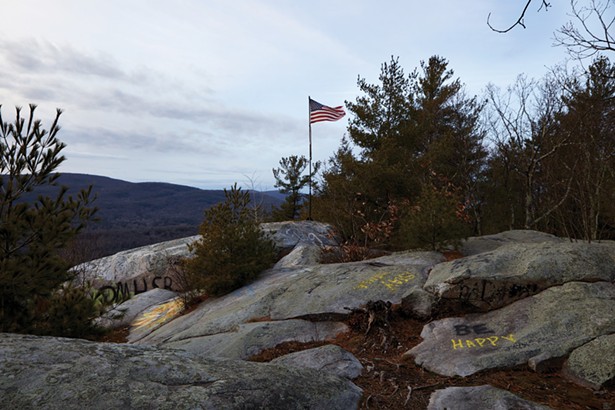This time last year, I looked back on the annus horribilis that was 2020 and wrote: “Thinking back to the beginning of 2020 is like watching the first reel of a disaster movie. The sky is blue, the birds are singing, everyone is going about their lives blissfully unaware of their unfortunate fate.”This was written after 300,000 Americans had died due to the pandemic, and the Trump’s administration’s politicized, incompetent response had done little to mitigate its worst effects.
But there were good reasons to hope that 2021 would be better: Biden had just been elected—there would be an adult in the White House again—and the vaccines, the vaccines that would save us! were on the way. I signed off my column with “Here’s to a boring 2021. May we be cursed to live in uninteresting times.”
We know it was not to be. First, the Big Lie, aided and abetted by craven politicians and partisan media outlets, then spread via social (disease) media. Then the January 6 insurrection. And now: 60 percent of Republicans believe that the 2020 election was stolen. An anti-democratic movement is growing in this country, founded on falsehood, fed on resentment, and capable of ending the American experiment. As Maria Ressa, editor of the Manila-based Rappler said recently in her Nobel Peace Prize acceptance speech: “Without facts, you can’t have truth. Without truth, you can’t have trust. Without trust, we have no shared reality, no democracy, and it becomes impossible to deal with our world’s existential problems.”
As of this writing, 800,000 Americans have died due to COVID. Vaccine hesitancy—and COVID deaths among the unvaccinated—is still very much a thing. And every day, more facts emerge detailing the slow coup of the Big Lie. Like the chilling Powerpoint presentation recently turned over by Mark Meadows, Trump’s chief of staff, to investigators at the January 6 Committee. Titled “Election Fraud, Foreign Interference & Options for 6 JAN,” the 38-page presentation was a proposed plan for Trump to declare a national emergency and for all electronic voting to be rendered invalid, citing foreign “control” of electronic voting systems. (I’m writing this in mid-December; undoubtedly a dozen other hitherto unimaginable affronts to democracy will emerge in the meantime.)
And I haven’t yet mentioned climate change—the floods, the fires, the tornadoes, the etc.
I did not think it would be harder at the end of this year to find uplifting words than it was at the end of 2020. That doesn’t mean I won’t find them. I just haven’t found them yet. [Author gets up and pours another cup of coffee, paces back and forth for a quarter of an hour, waiting for inspiration.]
Still waiting.
But January is a month of wonder. It exists so we can put the past behind us and start again—if not with a clean slate, then with a renewed sense of the possible. As T. S. Eliot wrote in “Little Gidding: “For last year’s words belong to last year’s language / And next year’s words await another voice.” Or, as Semisonic sang, in “Closing Time,” with shocking clarity and profundity for such a pop trifle: “Every new beginning / comes from some other beginning’s end.”
We are resilient creatures. We survive childhood, bodily injury, adolescence, heartache, adulthood, grief, the indignity of aging, loss of God—trauma after trauma—and still we persevere. Despite being haunted by the past, we gamely step into the future with what hope we can muster. We begin anew, sure that this year we’ll get it right—or at least less wrong.


















